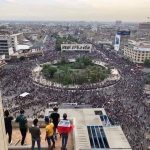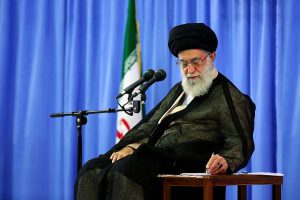The US-led sanctions regime isn’t directly targeting Iran’s healthcare system but reports continue to suggest that critically-ill Iranians are being affected. The Al Jazeera English clip above squares with Najmeh Bozorgmehr’s Financial Times article from September about how sanctions on Iran’s Central Bank are preventing critically-ill patients from getting crucial medical aid:
The government of Mahmoud Ahmadinejad says international sanctions have had little impact on the country and insists that its nuclear program should continue. It has launched a public relations campaign stressing that 97 percent of Iran’s medicine is produced domestically — a clear attempt to prevent panic that medical supplies could be at risk.
However, Ahmad Ghavidel, head of the Iranian Hemophilia Society, a nongovernmental organization that assists about 8,000 patients, says access to medicine has become increasingly limited and claims one young man recently died in southern Iran after an accident when the blood-clotting injection he needed was not available.
“This is a blatant hostage-taking of the most vulnerable people by countries which claim they care about human rights,” Ghavidel said. “Even a few days of delay can have serious consequences like hemorrhage and disability.”
UN Secretary-General Ban Ki-moon said in October that sanctions are affecting the supply of humanitarian essentials for Iranians regardless of special waivers:
“The sanctions also appear to be affecting humanitarian operations in the country,” Ban wrote in the report, dated August 22, to the 193-member General Assembly on the “Situation of human rights in the Islamic Republic of Iran.”
“Even companies that have obtained the requisite license to import food and medicine are facing difficulties in finding third-country banks to process the transactions,” he said.
US officials are apparently aware of these scathing reports, which bring back memories of the catastrophic effects that their past sanctions regime had on Iraqi civilians. Samuel Cutler and Erich Ferrari write in Al-Monitor that the Treasury Department has quietly rewritten regulations governing key aspects of the sanctions and now permit “US companies to sell certain medicines and basic medical supplies to Iran without first seeking a license from OFAC”. However, the authors add that it’s “difficult to predict exactly what effect the new authorization will have on the humanitarian situation in Iran”.
Iran’s healthcare system isn’t the only unintended victim of the sanctions’ crippling effect. Even independent Iranian publishers, which are already under the heavy hand of the Islamic Republic, are being hit.
This summer, Iran scholar Farideh Farhi also informed us about a report by the International Civil Society Action Network (ICAN) detailing the negative impact of sanctions on ordinary Iranians. Farhi’s article provides useful context and analysis for Bozorgmehr’s piece:
If ICAN’s analysis is accurate, it also foretells harsher economic realities for the most vulnerable elements of Iran’s population, a harsher political environment for those agitating for change, and a more hostile setting for those who have tried to maintain historical links between Western societies and Iranian society.
Sanctions impact calculations, but usually not in the intended fashion.




